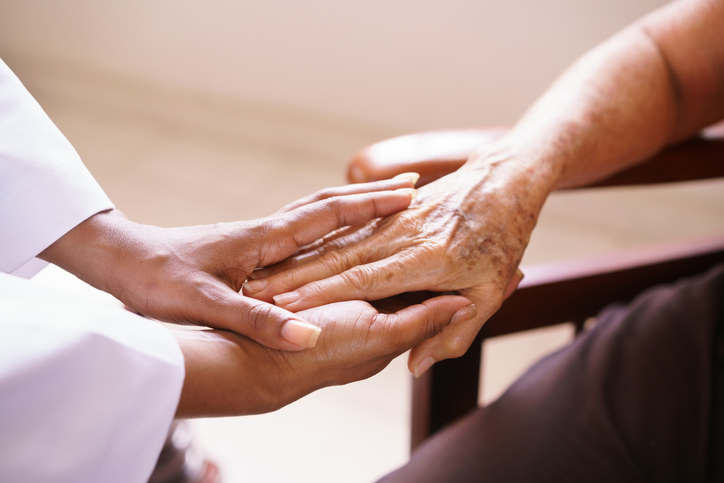AARP Hearing Center
The following guest blog was written by Ted Meyerson, an AARP Maryland volunteer.

What would you do if you had an accident or suddenly became so ill that you could not talk? If you had done some advance care planning, you and attending health care professionals, would know what medical treatments you would want, or not want.
Advance care planning gives you a voice, even when you cannot speak. It has the potential of avoiding family fights and lessening the emotional stress family members might feel when making heart wrenching decisions for you. And, it can lessen the huge costs that can be incurred giving you treatments you might not even want.
We tend to think that advance care planning is just for the sick and very old. But, it’s not. Everyone over the age of 18 should be encouraged to let others know what medical treatments they would want if they suddenly could not speak for themselves.
It’s so important that the Center for Disease Control recognizes advance care planning as a public health issue, and notes that a lack of planning has economic consequences for individuals, families, and governments. The policy of “If you don’t know what the patient wants, then do everything” can be costly.
To inspire, educate, and empower the public and providers with information about the importance of advance care planning, April 16 is being recognized by states across the country as National Healthcare Decisions Day. In Maryland, Governor Larry Hogan is declaring April 16 Maryland Health Care Decision Day.
A major instrument for advance care planning is an Advance Directive.
In Maryland, less than 30% of the population currently has an Advance Directive. If you subtract out hospital patients and residents in long term care facilities who are generally asked to make one, the percentage of users would be even smaller.
That’s a shame, because it’s easy to make an Advance Directive. For most people, the hardest part is talking about “what if” scenarios with family members and, maybe, your doctor and religious advisor, and deciding who you want to be your health care agent. Once you’ve had those conversations you need to talk with your designated health care agent and back up health care agent to be sure they understand what you want them to do.
After the talking is done, it’s relatively simple: you can either fill out a paper Advance Directive or an Electronic Advance Directive online.
Many paper Advance Directive forms are free. You can find various versions on the web. A popular one is called “Five Wishes.” But, there are others. including a version that is part of the Maryland Health Care Decisions Act. You can download that one from the Maryland Attorney General’s web page, fill it out on your computer, and print it.
If you don’t like the template forms, you could have a lawyer make an Advance Directive for you or make one by yourself. In Maryland, any paper Advance Directive is legal, as long as you and two witnesses sign it. You could even write something out on a piece of paper, get two witnesses to sign it, and you’d have a legal Advance Directive.
Usually, any competent adult can be a witness. Your doctor or other health care provider can be a witness. However, the health care agent you name cannot be a witness. One of the witnesses cannot be someone who will handle your estate or receive any benefit from it.
An Advance Directive does not have to be notarized; you can change it or withdraw it at any time, and copies are legal.
Having your Advance Directive available when needed is crucial. You will want to have a copy with your medical record, your lawyer, family members; everyone you can think of. Put it on your computer desk top and on your cell phone. An Advance Directive that isn’t available when needed may as well not exist.
Electronic Advance Directives are especially useful because they are available to qualified doctors and hospitals through the regional medical information system called CRISP. Electronic Advance Directives do not have to be witnessed.
In the future there may be other venders linked to CRISP, but, right now, you can make an Electronic Advance Directive (or upload your paper Advance Directive) to a web page called “MyDirectives” and your Advance Directive will be available to every hospital and qualified doctor in the state. There is no cost to you for that service.
Bottom line, make an Advance Directive now. Hopefully, you won’t need it for a very long time, but think of all the good that will come out of having it when needed.
Ted Meyerson is one of AARP Maryland's frequent speakers and often discusses Advance Directives in presentations across Maryland. He can be reached at tedmeyerson@verizon.net.































































